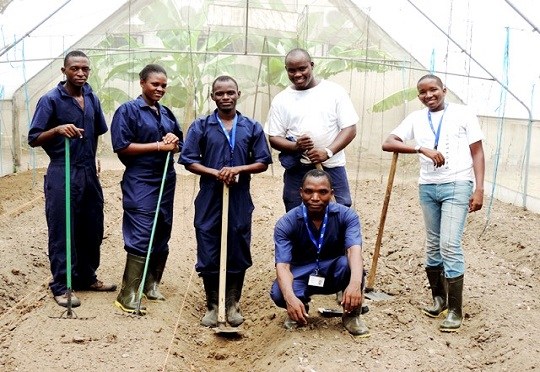The African Development Bank has made the empowerment of women and youth a priesthood in Madagascar. The projects funded in this country, also called the Big Island, cover all areas of development: energy, transport infrastructure, agriculture, the private sector, water and sanitation, training, etc. investments have the stated objective of improving the lives of women and young people by contributing to the development of the country. Several projects with a high socio-economic impact support this ambition of the Bank.
The Bas Mandoky development project in partnership with the Malagasy State, with a total cost of $61.7 million, over an area of 9,000 hectares, is one of them. The development of the Bas Mangoky irrigated perimeter, supplied with water by the Mangoky (822 km), the second longest river in Madagascar, has favored the drainage of water for the irrigation of rice plots.
Phase 1 completed in 2015 and phase 2 (2020) cover almost a decade. Phase 2 should allow an additional annual production of 44,000 tonnes of paddy rice and 2,400 tonnes of Cape Peas. The direct beneficiaries are estimated at 45,000 people, of whom approximately 51.5% are women. The increase in agricultural production could have the effect of increasing annual income per beneficiary from 624 to 1,503 US dollars.
Bertine Mariazy, farmer in Tanandava, a rural commune in the Morombe district, in south-west Madagascar, says: “I have been able to increase my income in recent years with the purchase of plots of land. My family and I now own four cultivable hectares. ” Thanks to her rising income, she was able to provide education for her daughters. “The first one thus trained at Tulear to become a nurse. The second is at the agricultural college in the neighboring town, ”she adds with pride.
The situation is similar for many other women in the region, engaged in rice farming, who have been able to acquire land, double their production and increase their purchasing power. 73% of employed women are in agriculture.
The Youth Entrepreneurship Promotion Program in Agriculture and Agro-Industry (PEJAA), launched in 2018 in Antsirabe, also responds to this imperative of empowering young people on the Big Island. After 12 months of training in agricultural value chains, 35 young “agripreneurs”, 51% of whom were women, received their training certificate on April 23, 2019, as well as a check to help installation and for their projects. In total, 320 young “agripreneurs” will be trained and financed up to almost 10,000 euros, at a preferential rate of 9.5%, guaranteed 100% by the fund set up by BNI bank, with the support of the African Development Bank.
Raïssa was one of the beneficiaries of the Public Professional Training Center for People with Disabilities (CNFPPH) in Tsarahonenana Ampandrianomby, in the capital. From the cut and sew promotion in 2013-2014, she was able to find a job in the formal sector thanks to her training certificate, despite her disability. Just like Justin, a blind person who was able to integrate the world of work thanks to a braille computer training, and who currently holds a position in the accounting, inventory management and customer relations of a company. He also started a small catering business.
The CNFPPH received a loan from the African Development Fund – the Bank Group’s concessional loan window – up to $22.24 million with a grant of $ 695,000. Support for the empowerment of women is a political will of the Bank which, in July 2016, approved a donation of $12.4 million from the European Union for the creation of the networking platform “50 million women African women have the floor ”(50MWS), dedicated to women entrepreneurs in sub-Saharan Africa.
In 2015, the Bank launched the Gender Equality in Africa Index, with the objective of providing key gender statistics across the African continent. Index aims to guide appropriate policies and investments to make gender equality a reality across the continent
